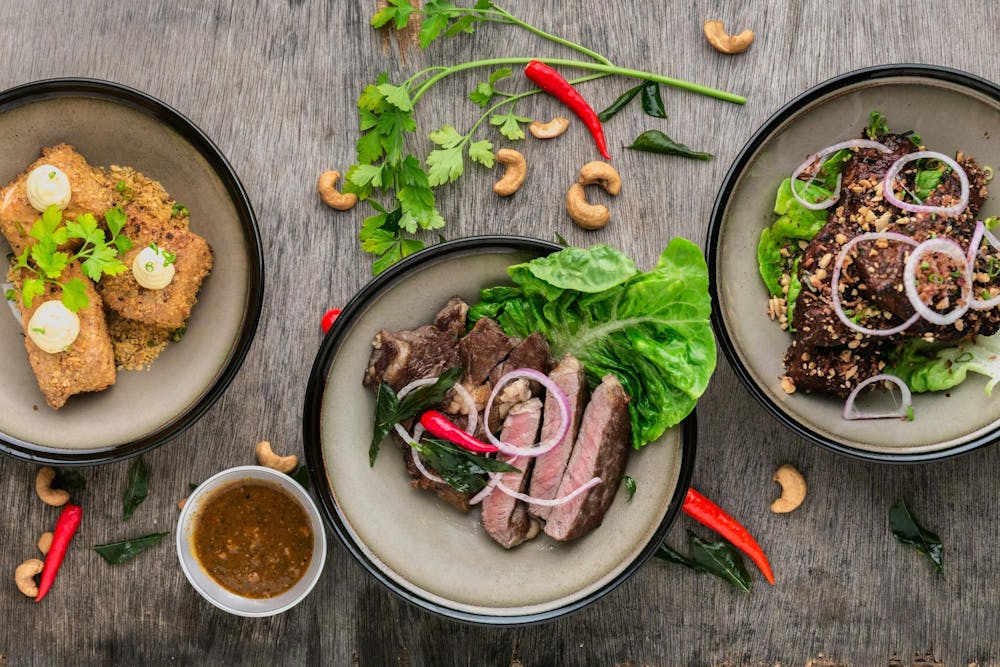Food is an essential building block of our lives. Without it, our bodies cannot survive. It is also fundamental to our social lives, drawing people together over shared meals. Our culture is sewn together by the collective memory of food: traditions and heritage are embodied in shared dishes and ways of cooking.
My college experience has pushed the importance of food to the forefront. Dorm culture is centered around food, whether it’s sharing fresh baked cookies at hall government meetings, making sundaes after mass or ordering late night food from one of the dorm restaurants (shout out Za Land). The dining hall is the bastion of social life, with its tables filled with gossiping friends, rowdy dorm groups and awkward dining hall daters. Free food, whether it’s food trucks on library lawn or tabling in Duncan, mobilizes and socializes hungry students.
Beyond that, Notre Dame’s Catholic mission has emphasized the importance of food in the form of breaking bread. Sitting down to nourish my body in the presence of others is an act of solidarity that acknowledges our shared humanity.
While college has shown me how beautiful and profound food can be, the past few years have reframed my relationship to food.
To begin with, the tumultuous years of college are known to dramatically alter people’s eating habits, from the loss of structure given by family, the social nature of eating and drinking and the sheer accessibility of food on campus. The infamous “freshman fifteen” is illustrative of this dynamic, including the negative judgment attached to it. Alongside this new access to food, many colleges students struggle to eat enough.
I was no stranger to experiencing this new dynamic. I grew up dancing all my life. The dance community is rife with toxic attitudes towards food. In an art that has historically — and still continues to — desire thinness, food is often depicted as something to be managed. Limited. Controlled.
When I hung up my leotard to become a college student, I struggled to navigate how to eat within the confines of the food available to me on campus, the sociability of food and my newfound, relatively inactive lifestyle. Living in the female space of the dorms, I came to know that many of the women in my life had similar tumultuous relationships with food. I was reminded of people’s struggles with food from conversations surrounding each macro and calorie in what was being eaten to the way North Dining hall’s bathroom consistently smells like throw up.
Beyond that, meeting new people meant having to introduce and explain my dietary choices. I have been vegetarian since I was in seventh grade. I am not quite sure what came over me, but one day I just decided to stop eating meat. People love to ask me why I am vegetarian, expecting me to lecture them on the health benefits of a plant-based diet, pronounce my mercy for all animal life, bash industrial food production or oust myself as a climate-change extremist. I certainly enjoy the vast benefits of being vegetarian and believe there are environmental, ethical and health components that can be incorporated into anyone’s diet, but my vegetarianism is a choice that has been motivated by reasons that have evolved and changed over the last eight years. Now, it’s largely driven by momentum: I like how I feel and eat and wouldn’t want to change that.
While many times being vegetarian might simply be a quirk, my time at Notre Dame has put my in situations that have shown me what I eat is also a privilege. I distincintly remember times last summer in Mexico, where I was volunteering at a migrant shelter, where people would stare at me as I ate something different from them. As they ate rice with chicken that had been re-fried multiple times, I would quietly eat a salad. In an environment where meals carry significant emotional and spiritual value, I — embarrassingly — would find myself preoccupied, stressing about how unhealthily I had been eating.
My current study abroad program in Chile has been been one of the hardest challenges for my vegetarianism. High protein foods that I usually eat to sustain me — greek yogurt, feta cheese, protein bars, hummus — are expensive. My host family in rural Chile has one large meal a day, supplemented with bread and tea during breakfast and dinner times. With these new eating habits, I often found myself hungry.
These past years of my college experience have emphasized that food is not always as simple as feeding my body or enjoying a flavorful, cultural experience. My relationship to it is constantly evolving and changing. Ultimately, this relationship comes fabricated into who I am — physically and spiritually — because, after all, you are what you eat.










